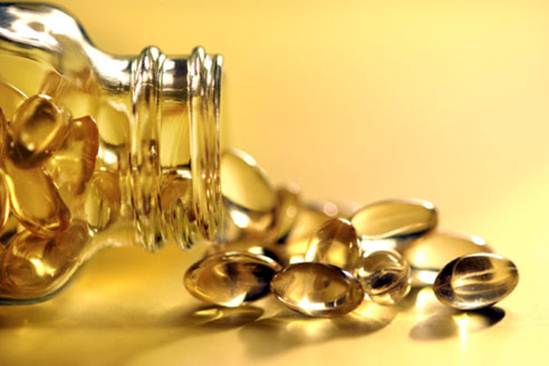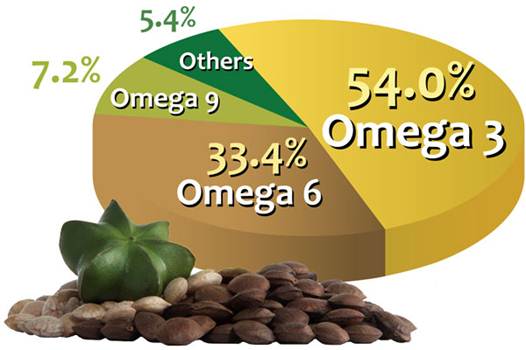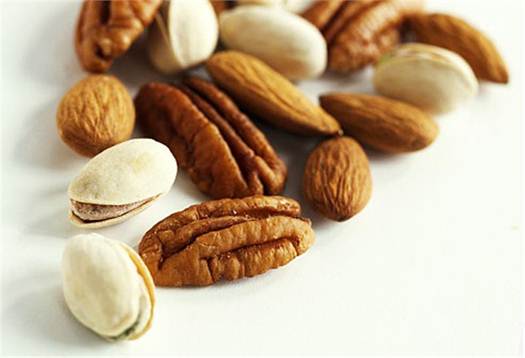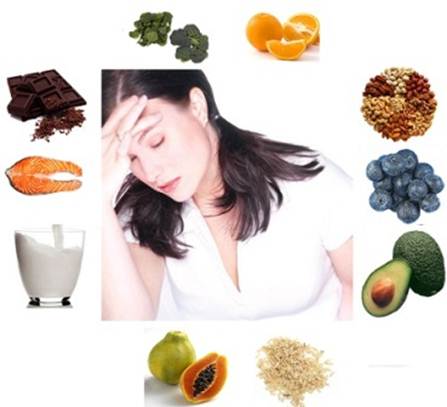Research is
just beginning to demonstrate that omega-3 fatty acids may plat a role in
preventing both breast and colon cancers.
In the
Nurses’ Health Study, those who ate fish four or more times a week had a lower
risk of age0realted macular degeneration than those who are ate three, or
fewer, fish meals per month. The most prevalent fatty acid in our retina is DHA
and the primary dietary source of this “good fat” is salmon and other so-called
heart-healthy fish.DHA also seems to reduce some of the adverse effects of
sunlight on retinal cells.

Omega-3 fatty acids may plat a role in
preventing both breast and colon cancers.
Researchers
believe that the anti-inflammatory abilities of omega-3 fatty acids are what
help reduce the symptoms of autoimmune diseases as well as prolong the survival
of those who suffer from them. Multiple studies have substantiated these results.
Perhaps the
most interesting research on omega-3 fatty acids involved their relationship to
mental health ailments such as depression, attention deficit hyperactivity
disorder, dementia, schizophrenia, bipolar disorder, and Alzheimer’s disease.
Our brains are surprisingly fatty: over 60 per cent of the brain is fat.
Omega-3 fatty acids promote the brain’s ability to regulate mood-related
signals. They are a crucial constituent of brain-cell membranes and are needed
for normal nervous system function, mood regulation, and attention and memory
functions.
When is
comes to omage-3 fatty acids, wild salmon is one simple answer. Add it to your
diet. Wild salmon is delicious, high in protein, widely available in canned
form, easy to prepare, and more important, high in beneficial omage-3 fatty
acids. If you eat wild salmon or other cold-water fish, like sardines or trout,
two to four times a week, you’ll “rebalance” the ratio of fatty acids in your
body and be on your way to vastly improving your cellular health. There’s ample
evidence that including cold-water fish like wild salmon in your diet will have
a positive effect on your short and long-term health.

What is Omega-6 fatty acid?
Omega-6
(along with omega-3) belongs to family of fats called essential fatty acids.
These EFAs are found in polyunsaturated fats.
Omega
6 – Linoleic Acid (LA) – is the essential fatty acid in ample supply.
The best
sources of omega-6 are seeds, nuts and grains and green leafy vegetables, like
lettuce, broccoli, purslane and kale, and in certain raw vegetable oils. Care
should be taken to use raw cold pressed vegetable oils because cooking destroys
the benefits of the ratty acids.
Omega-6 fatty acids are also found naturally in:

·
Olive Oil
·
Wheat germ
·
Grape seeds
·
Pistachios
·
Sesame oil
·
Hempseed oil
· Pumpkin
seeds
·
Chia seed oil
·
Safflower oil
·
Sunflower oil
·
Cottonseed oil
·
Raw nuts and seeds
What is Omega-9 fatty acid?
Omega-9, or
monounsaturated oleic and stearic acid, is a non-essential fatty acid produced
naturally by the body whenever there is enough of either Omega-3 and 6
essential fatty acids.
However, if
you do not have enough omegas 3 and omega 6, then you must get
omega 9 from your diet.
This fatty
acid plays a role in preventing heart disease by lowering cholesterol levels.
Other benefits of omega 9 are that it reduces hardening of the arteries and
improves immune function.
Omega-9 fatty acids are also found naturally in:

·
Avocados
·
Pecans
·
Cashews
·
Almonds
·
Hazelnuts
·
Pistachios
·
Macadamia nuts
·
Chia seed oil
·
Olives and olive oil
What are EPA and DHA?

A lack of DHA has been associated with
Alzheimer disease
Within the
body omega-3 fatty acids are converted to DHA and EPA (docosahexaenoic acid and
eicosapentaenoic acid, respectively). DHA and EPA are highly unsaturated fats
that play very important roles in the vision development and brain function of
infants.
A
lack of DHA has been associated with Alzheimer disease, attention disorders,
phenylketonuria, cystic fibrosis and other diseases. Blue green algae are a
good source of EPA and DHA.
Before you
overdose on fish oil supplements, consult with your physician and make sure
that your diet is well-balanced and has a variety of foods full of omegas and antioxidants.
Add nuts and seeds into morning oatmeal, avocados, olive oil or grape seed oils
into your salads and enjoy fish a few times a week. Fish oil supplements can be
a great addition to your regular fiet, but feel your body and remember
moderation is the key!
Stay fit
and be healthy.